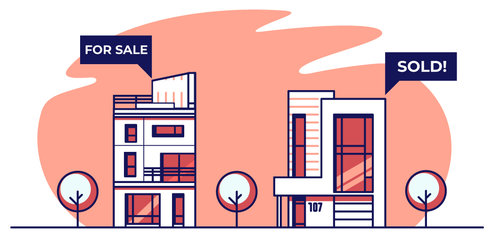
Your first apartment can allow you greater freedom and flexibility, but if you haven’t done it before, it can seem like a daunting process. It doesn’t have to be. Just follow these guidelines to help you find a place that meets your needs and your apartment budget.
Before you even begin looking for your first apartment, determine how much you can comfortably pay. Experts vary on the percentage of your income that should go, but the generally accepted range is usually 25 to 30 percent of your wages. However, you also need to consider your debt payments, daily living expenses (groceries, eating out, and entertainment), and other bills. Take time to look at your budget before you start looking for your apartment, and make sure you leave enough money to put toward getting out of debt and saving money in addition to your expenses.
Also, Read: Questions to Ask When Looking for Senior Apartments
You need to determine the best place for you to live in relation to where you work. In general, the farther away you are from work, the higher your transportation costs will be. If you work in a major metropolitan area, you will likely find that the housing costs decrease the farther away you live. The trick is to find a balance between the two. You may save money by moving close to a train line or other public transportation. You can begin by searching online to get a general idea of the pricing in the area.
Many apartment-hunting websites and apps allow you to limit your apartment search to a particular area and see the range of prices within that area.
Also, Read: Budgeting For Your First Rental Apartment

After you’ve determined the general prices and what you can afford, decide whether or not you need or want one or more roommates. Sharing a place with roommates can also mean being able to afford a bigger apartment with more amenities, but you’re also sacrificing privacy, to some extent. In some areas, apartments with multiple bedrooms end up being cheaper per person than one-bedroom apartments. Do the math to understand what you’d potentially be saving and if it’s worth giving up a little privacy and dealing with other people when it comes to bills, and household responsibilities. If you’re used to living with other people, then having roommates might be your preference.
Good references can be key to getting into the apartment you want. You don’t have that option when you’re applying for your first apartment, so you’ll have to look elsewhere for your references. A good place to start is at work. Your supervisors and managers will be able to speak to your responsibility and your performance on the job—and the likelihood that you’ll have a steady paycheck for paying rent. If possible, get them to write letters ahead of time so you’ll have them ready to submit with your application. Avoid getting references from friends and family, if possible, because those will mean less to landlords.
Once you have decided on one or two areas that you want to live in, look online, as well as in the local newspaper. You may be surprised at the deals that you can find there. Call a few property management companies to find out what they have available. Only choose five properties to view at a time. Otherwise, you risk not only exhaustion from coordinating and making all of the viewings, but you might find that all of the properties start to blur together. Consider taking pictures of each of the exteriors and interiors so that you can remember the apartments.

The last thing you want to do is move into the first apartment of your dreams only to realize that you can’t afford the heat, electricity, and gas bills that come with it. Find out which utilities are included in the rent for each property you look at and also which ones are not. For the utilities that aren’t included, get an estimate of how much you can expect to pay each month from the broker, landlord, or utility company.
Many landlords include utilities such as heat and hot water in your rent, and some also include all gas and electricity. Other apartments might also include things like internet, phone, and cable access with the rent. The more amenities offered generally means higher rent. However, if you find a good deal, you may end up saving money if you were to purchase cable, a gym membership, and a phone line.
Tip : Instantly get the best internet offers in your area
Although you may feel pressured to make an immediate choice, generally you should take at least 24 hours to think about whether or not you want to apply for an apartment. Consider all factors when making a choice. If you simply go for the apartment with the cheapest rent but feel that the building is rundown or unsafe, then that’s not a wise decision. Consider safety if you are going to be living alone—a second-story apartment is safer than one on the first floor.
Reviewing the lease carefully will save you big headaches later and also ensure you don’t inadvertently break it and get into legal trouble. You can prepare by gathering information on how to read and understand a lease, or, if you want to be very confident in what you’re signing, you can run it by a lawyer.
Related Articles:
Why Research is very important when you are Planning to Move?
Tips on How to Find The Right Neighborhood
How to Decide if You Should Move or Not ?